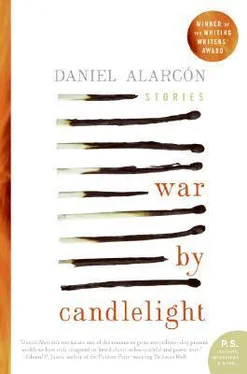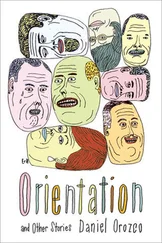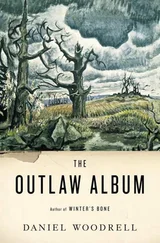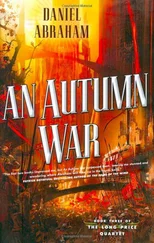“Everything hurts.” Her face drooped into a sad frown. Reena held her hand out, and for a moment, it hung there between them. She looked pitiful. He took her hand in his and massaged it. He pulled it to his lips and kissed the third knuckle. He stood to leave.
“Will you clean up the place?” Reena asked. “In case my mom wants to take me back there?”
David said he would.
All alone in the apartment, David appreciated its darkness. He sprawled out on the bed and left the lamps off. The faucet dripped. It would be such a childish gesture, but somehow satisfying: to leave a clue. Something undeniably his. His basketball, scuffed and bruised on the Riverside courts; or his camera, which he’d used to take pictures of Reena at her last dance performance. He got up and pulled the curtain, the anemic midmorning light filtered in through the window. He thumbed through a stack of photographs on the desk and found the one shot he loved of Reena in her mustard-colored sari, gold earrings and glittering bracelets on her wrists and on her ankles above her graceful, bare feet. She was gleaming and young. Her parents were there. How close he had been to them, as if he could have stepped out of the crowd and into their world, and offered his hand: Mr. Shah. Mrs. Shah. How simple it would have been.
Her father had died a few weeks later. Then Reena had started working at a lab uptown and studying full-time. She had dropped her dance classes altogether.
David showered and put away his things. On his knees, he cleaned the bathroom. He left a fine mist of aerosol disinfectant floating in the air, a lemony medicinal scent that stung the inside of his throat. He left and locked the door.
By mid-December, she’d been to three doctors. Lyme disease, said the first. The second mentioned lupus, but said he couldn’t be certain. The third, whom Reena chose to believe for the calm and reassuring manner in which he spoke, diagnosed early-onset arthritis. It was comforting, she told David, to have a diagnosis, a name to give her symptoms. She’d quit her job. Most days she wanted to lie in bed. Her knees hurt. Her elbows. The individual joints of her fingers. On the worst days, she described steel rods running the length of her legs, unbendable knees, the stiffness of a frozen cadaver. The doctor said it would pass, but Reena told David that sometimes she felt she was dying. I’m too young for this, she said.
Her mother came nearly every day now, and David wondered, in his more selfish moments, what was worse: a sick girlfriend or her overbearing mother exiling you to the streets. Reena and David hadn’t made love since before the trip to the emergency room. She was always tired, or looked so ill and unhappy that he was afraid touching her might be interpreted as an assault. Her mother came and stayed late, sometimes till eight or nine. She cried with her daughter and told Reena that someone had cursed them. She burned incense and herbs with such overpowering odors that the neighbors complained. They prayed together while David waited outside, or at La Floridita, brooding, for Reena to call him on his cell phone so he could come home. He still waited for Mrs. Shah, watching for her unsure steps as she came down the escalator from the train. Each time, Mrs. Shah turned uncertainly toward 125th Street, or looked down Broadway, a pause as if lost, before heading up toward the apartment.
David steadfastly refused to abandon his project. He wanted more than ever to crack into Mrs. Shah’s world. There was something in her that he recognized: the way she walked, the little regard she had for the neighborhood, or for the particulars of the street, or for him, planted somewhere along her short path from train to apartment. That invisibility is not me, he reasoned. It is her. He didn’t know what part of India Reena’s family was from, but it was, he imagined, nothing like this. It was not squat gray buildings. It was not the south edge of Harlem. It was not kids in oversize black jackets huddled on corners, or the boom-bip of a snare drum escaping from the window of a Jeep. It was not lazy Spanish in bodegas, or Goya beans, or storefront windows that bathed cell phones in green neon light. It was not Malian women standing by the train, offering to braid hair with nimble fingers. Wherever Mrs. Shah was from had none of these things. And so, Mrs. Shah could walk through it, as if in a fog, and not see it, and not care; and David could smile and nod a hundred times, and never be seen. Her husband was dead. Reena was the only real person in her city.
The first snow fell and melted into black-brown sludge, piling icy and unclean in the city’s gutters. On a Thursday afternoon, David waited for Mrs. Shah. He sat on the front step of the building, holding a stack of books and folders full of papers. The director had assigned social work readings for an upcoming staff development day. Upstairs, Reena was yellow and sick, drowsy with pills. She complained that the medicine was making her gain weight. David pretended not to have noticed.
The block was quiet, in its winter grays. At the bottom of the hill, Mrs. Shah emerged from the train station. David gathered his things and made his way down the hill to meet her. To walk by her. He would make eye contact this time. He would nod. He would offer to carry her bag for her. The sidewalk was slippery. David wiggled his toes inside his boots. And Mrs. Shah trudged slowly up the block, arms empty, wearing a grim, determined expression, as if fighting the cold. These were sad visits. She was wrapped in a black wool coat, her head covered by a bright orange scarf. She looked straight ahead.
Halfway down the block, David felt the helplessness of that moment just before one is ignored. It stung. Reena, he felt certain, would kill him for what he was about to do, but, in any case, it was done: a few feet in front of Reena’s mother, David pretended to stumble and then, despite himself, he did. He lost his balance on the slick pavement. His books and papers spilled everywhere. He slid back until he was down, ass on the cold, wet sidewalk, Mrs. Shah standing over him. He was out of breath. He looked her in the eye.
“Young man,” Mrs. Shah said, with a look of surprise and worry, “are you all right?”
He’d crossed some line. She seemed genuinely concerned, more than simply polite. She would remember his face. She looked as he imagined Reena’s mother should: with Reena’s deep brown eyes, her full lips, her delicate nose. Mrs. Shah was a little darker than her daughter, who was a bit darker than David. She smiled kindly, the lines on her face deeper and more noticeable than when he had last seen her. She had aged in these months, carrying the burden of her daughter’s illness.
Mrs. Shah asked again, “Are you all right?” She offered him a hand.
“Me? Oh yes,” David said. “ Tik . I’m fine.”
“Sorry?”
“ Tik ,” he repeated. He hadn’t expected to fall. He’d only wanted to drop the books. He felt his palms sweating on the inside of his gloves. “I’m fine.”
By the look of befuddlement on Mrs. Shah’s face, David knew he had gone too far. She would mention it to Reena. Tik. It would become a question. She would want to know what was going on. “Thank you,” David said as Reena’s mother passed him a book. She stood there, watching him as he stacked his things on the sidewalk.
“Thank you,” he said again, then he took his books and papers under his arm and barreled down the hill toward the train.
When they met and started dating, Reena often described the situation ironically: a bind, she said, a circumstance. A context . They talked for hours and hurt themselves laughing. Her situation didn’t change or go away; they simply chose to ignore it. There was no logic to it, no forward thinking: they had no other choice.
Читать дальше












